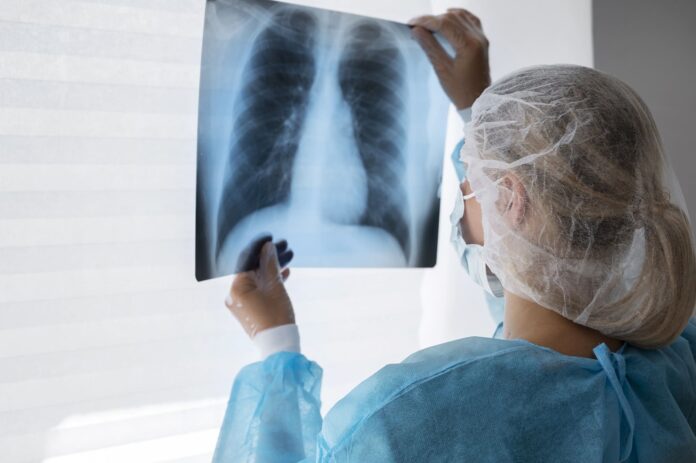Lung cancer remains the leading cause of cancer-related deaths in France. On the occasion of Pearl November, the Together We Breathe Collective is intensifying its efforts to promote early detection. Mr. Pascal Bataille’s testimony highlights the issue of late diagnosis and the need to reduce medical wandering.
While lung cancer remains responsible for numerous human losses in France, several actors from the medical and associative world are seeking to accelerate the implementation of organized screening. The creation of a national pilot program marks a new phase. It aims for earlier detection and a reduction in inequalities affecting patients, depending on their place of residence, social situation, or gender.
The month of November is dedicated to raising awareness around this disease. On this occasion, the Together We Breathe Collective, supported by Professor Paul Hofman, Professor and Hospital Practitioner in Pathology at the CHU of Nice, aims to raise awareness among the largest possible audience around this message: better detection for better treatment, for all, everywhere in the territory.
The disease is often diagnosed late: 70 to 80% of lung cancers. The goal is clear: explain the role of screening, remind people of the signs that should alert them, and encourage more frequent use of low-dose CT scans. The collective is supported by specialists and committed personalities. Among them is TV host Pascal Bataille, affected by lung cancer, who shares his journey.
His experience highlights the difficulty of obtaining a rapid diagnosis. The delay can lead to tumor progression and more intensive treatments. He states: “I am in great shape, and once diagnosed, I benefited from effective new protocols and a team of caregivers exemplary in their competence and humanity. However, it took 9 months to diagnose my lung cancer, which, of course, allowed the tumor to progress and forced me to undergo chemotherapy and immunotherapy treatments that might have been avoided if a CT scan had been prescribed much earlier. Supporting and informing about lung cancer screening is therefore evident to me. I am convinced that it will not only save lives but also spare many patients from undergoing very demanding treatments for them and expensive for society.”
Diagnoses often too late
Between 70% and 80% of lung cancers are identified at an advanced stage. Several factors explain this situation. The first signs are often subtle. They can be mistaken for common respiratory issues. Some people consult late or encounter obstacles in their healthcare pathway. Additionally, there is still limited recourse to low-dose CT scans, although recommended by learned societies. According to a study conducted in Hauts-de-France, only a portion of primary care physicians use it to screen for the disease.
Dedicated diagnostic pathways, however, show promise. Research conducted in Italy indicates that specific diagnostic steps organization allows faster access to essential exams, such as biopsies or PET scans. Patients also report a better experience of the pathway. These results contribute to ongoing reflections on tools to deploy in France to reduce delays.
In parallel, therapeutic advances are improving survival. But early detection remains crucial. Cancer detected early offers more favorable treatment prospects. Data show a significant gap in survival rates depending on the stage at diagnosis.
The IMPULSION project aims to evaluate the conditions for organized screening. It targets current or former smokers aged 50 to 74 years. The program is based on a low-dose CT scan and the proposal to quit smoking. In France, several million people would be eligible. International studies show a notable decrease in mortality with regular screening.
The Together We Breathe Collective emphasizes that prevention and support for smoking cessation remain essential. The challenge is twofold: reduce the risk of disease onset and improve the efficacy of organized screening. The collective’s members also advocate for reducing inequalities in access to care, still pronounced depending on the territories.
Pearl November provides a framework to deliver this message closer to the public. The mobilization aims to better inform and encourage a reflex: consult in case of persistent symptoms and seek a prompt medical opinion. It also aims to remind that anyone can be affected, regardless of their background.


